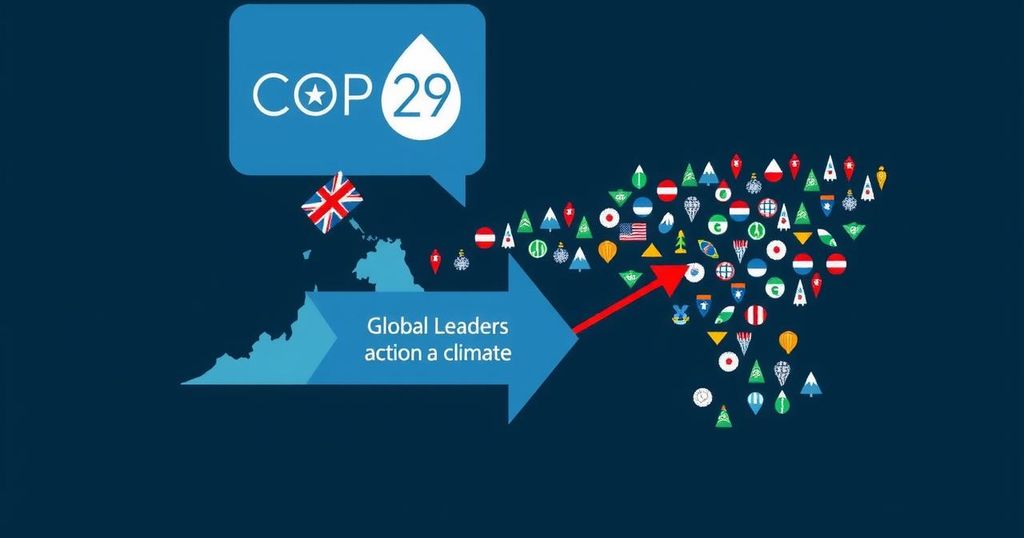At COP29 in Baku, developed nations pledged $300 billion annually for climate change efforts, aiming to reach $1.3 trillion by 2035. However, this has been criticized by developing nations as insufficient. U.N. officials urge for greater ambition in climate financing as the impacts of climate change intensify, with significant concerns raised about the adequacy of support for vulnerable countries.
At the COP29 in Baku, developed nations pledged $300 billion annually to combat climate change, with a long-term goal of increasing this amount to $1.3 trillion by 2035. However, this commitment has faced significant criticism from developing nations, which argue that the funding is grossly insufficient to tackle the pressing challenges posed by climate change. U.N. Secretary-General Antonio Guterres underscored the inadequacy of the pledge, describing the urgent need for more ambitious action to combat the climate crisis.
The concerns raised by developing nations were echoed during the conference, with representatives voicing strong objections to the terms of the agreement. India’s representative, Chandni Raina, denounced the deal as “an optical illusion” that fails to address the magnitude of the challenges facing vulnerable countries. Similarly, Tina Stege from the Marshall Islands stated that the funding leaves these nations with inadequate resources amidst a growing urgency. Sierra Leone’s delegate further criticized developed nations for lacking commitment and goodwill towards climate financing.
This agreement highlights the ongoing, stark tensions between wealthy nations and developing countries regarding climate financing. While vulnerable nations disproportionately suffer the impacts of climate change, they contend that the wealthier countries are not providing sufficient support or accountability for their contributions.
In a broader context, the urgency of climate action is underscored by projections from the EU’s Copernicus climate observation platform, which anticipates that 2024 may become the hottest year on record, with global temperatures already significantly higher than historical averages.
Looking forward, there are mounting pressures on developed nations to honor their financial commitments and adopt a fairer approach to climate financing as COP30 approaches. Developing nations continue to advocate for increased contributions, particularly from major emitters like the United States, Canada, China, and Gulf states, to ensure a more equitable response to climate change.
The issue of climate financing has emerged as a central theme in international climate negotiations, particularly at the U.N. Climate Change Conferences. Developed nations have historically committed funds to support developing countries in mitigating and adapting to climate change. However, disparities in these commitments have led to tensions, with developing nations expressing dissatisfaction with the financial resources provided. The need for urgent climate action has been further emphasized by alarming climate data that points to increasing global temperatures, posing significant risks to vulnerable populations.
In conclusion, while the pledged $300 billion annual funding from developed nations at COP29 represents a step towards addressing climate change, it has been widely criticized for its insufficiency. The mounting pressure from developing nations underscores a critical call for greater accountability and contributions from wealthier countries, especially as the world faces unprecedented climate challenges. As the next climate conference approaches, expectations for substantial action and equitable support will continue to rise among vulnerable nations.
Original Source: www.turkiyetoday.com






